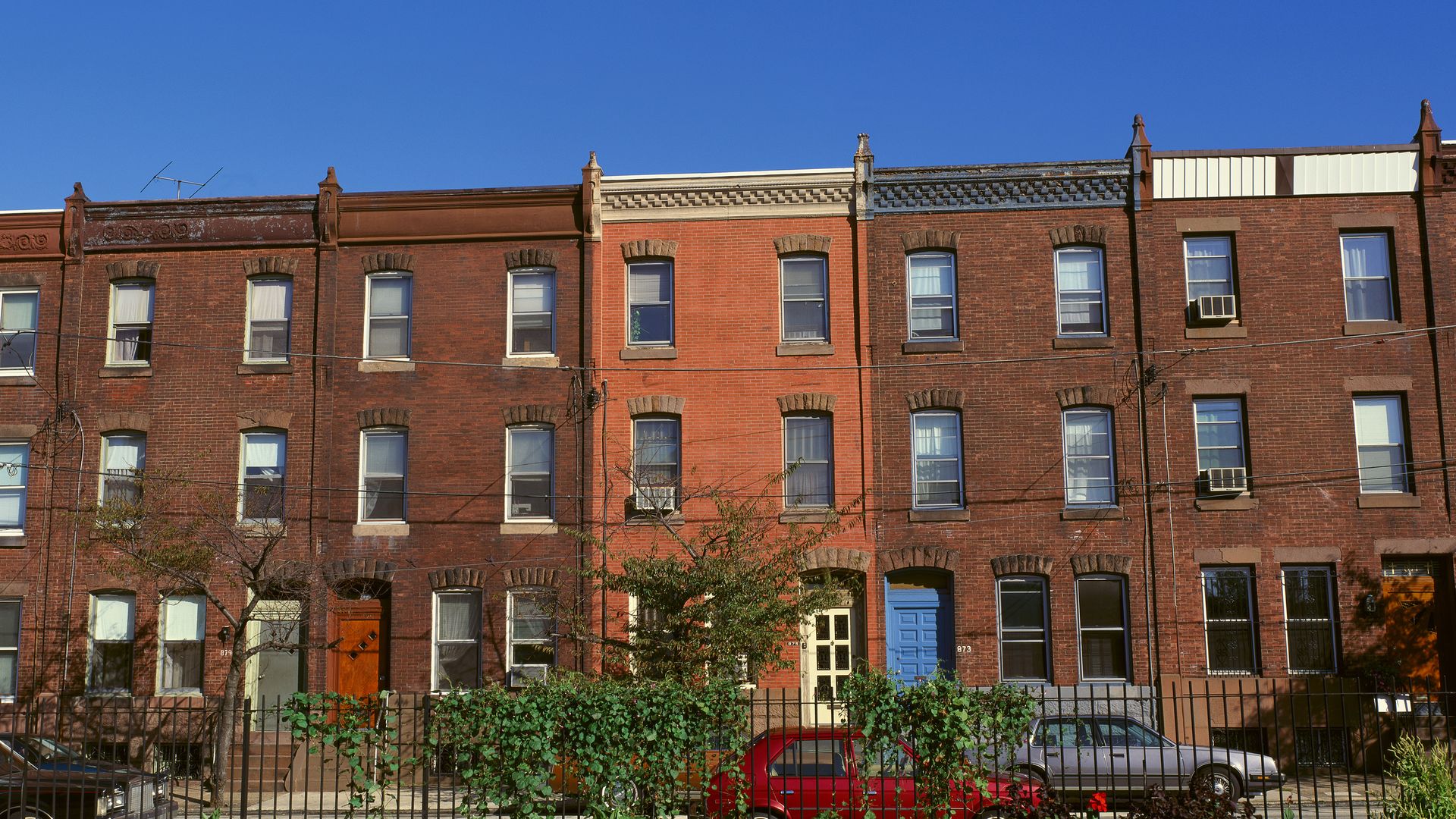What's driving the dip in Philadelphia's affordable housing
Add Axios as your preferred source to
see more of our stories on Google.

A view of red brick row houses of Philadelphia. Photo: Joe Sohm/Getty Images
Are tenant protections put in place during the pandemic leading to a decrease of affordable housing in Philadelphia?
What's happening: Drexel University economist Kevin Gillen told Axios that anecdotal evidence suggests the supply of low-income and moderate-income rental housing in Philly is trending downward.
- Small landlords own the bulk of the city's affordable rental stock. And many have been selling their units, upgrading them to charge higher rents or are being more selective when choosing tenants, like requiring higher credit scores, according to the Homeowners Association of Philadelphia (HAPCO).
- Gillen said this reduces the supply of affordable rental housing in the city.
By the numbers: 1,812 single family rental properties were converted from renter-occupied to owner-occupied between January 2020 and August 2021, Gillen said.
- Of note: Nearly 21% of Philly landlords listed properties for sale in 2020 — a steep increase from 3.5% in 2019, according to an August report from researchers that included the University of Pennsylvania's Housing Initiative at Penn.
What they're saying: Gillen blamed the expired eviction moratoriums and the city's Eviction Diversion Program, which requires landlords and tenants to resolve issues through mediation. (The program also mandates a 45-day wait period for landlords to seek a court eviction order.)
- "The moratorium may have been well-intentioned … but it's having some very regressive effects," he said.
Greg Wertman, president of HAPCO, told Axios that the pandemic, expired eviction moratoriums and new tenant protections have reduced rent collections and hurt small landlords.
- "It's always the little guy who's getting hurt," said Wertman, whose group represents approximately 1,600 small landlords, most of whom have one or two units.
The other side: Councilperson Helen Gym, who spearheaded the Eviction Diversion Program, called Gillen's claims linking the program to a drop in affordable housing "ridiculous" and baseless.
- Gym also noted that the local eviction moratorium ended in August 2020. The federal moratorium expired in August of this year.
Between the lines: Emily Dowdall, policy director at the Reinvestment Fund, said in an email that there are several market forces at play encouraging landlords to sell rather than rent.
- Low interest rates during the pandemic created an advantage for new homeowners, and a city-funded initiative during this time helped moderate-income households move to homeownership.
Dowdall added that housing has become less affordable because home prices rose faster than incomes during the pandemic.
- Philadelphia home prices jumped nearly 13% over 2020, while incomes were up 7.3%, she said.
- "Rising sale prices can make the prospect of selling one's rental property more appealing," she added.
